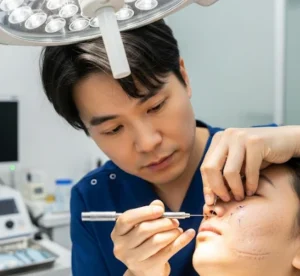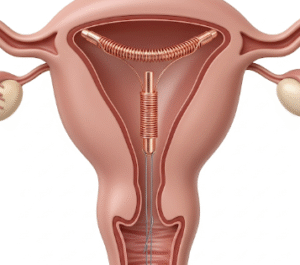Overview
Emotional dysregulation refers to the difficulty in managing, processing, or responding appropriately to emotional experiences. Individuals with emotional dysregulation may experience intense emotions, rapid mood swings, or difficulty calming down after stressful events. It is often associated with mental health conditions, such as borderline personality disorder, bipolar disorder, depression, anxiety disorders, and trauma-related disorders. In Korea, psychiatric clinics and counseling centers provide evaluation, therapy, and support for individuals struggling with emotional regulation, aiming to improve emotional stability, coping strategies, and overall mental health.
Highlights:
➤ Difficulty controlling emotional responses – Intense or unpredictable reactions
➤ Associated with various mental health disorders – Borderline personality disorder, depression, anxiety
➤ Impacts daily functioning and relationships – Affects work, school, and social life
Key Facts
➤ Prevalence: Emotional dysregulation is common in individuals with psychiatric conditions but can also appear in otherwise healthy individuals under stress.
➤ Age affected: Can occur at any age, but early onset is often seen in adolescence or young adulthood.
➤ Gender: Both males and females can experience emotional dysregulation, though expression may differ.
➤ Impact: Affects interpersonal relationships, academic and occupational performance, and overall quality of life.
What is Emotional Dysregulation?
Emotional dysregulation is the inability to modulate emotional responses appropriately, resulting in extreme reactions or difficulty returning to baseline emotional states. It involves:
- Heightened emotional sensitivity – Overreacting to stimuli that others may find minor
- Intense emotional responses – Strong anger, sadness, anxiety, or fear
- Slow return to baseline – Prolonged distress or rumination after triggering events
Highlights:
➤ Affects cognitive processing and decision-making
➤ May result in impulsive behavior or self-harm in severe cases
➤ Can be both situational and chronic depending on underlying factors
What Symptoms Are Related to Emotional Dysregulation?
➤ Rapid mood swings – Sudden shifts from happiness to sadness or anger
➤ Impulsivity or risky behaviors – Acting without considering consequences
➤ Difficulty calming down – Struggling to soothe oneself after emotional triggers
➤ Heightened anxiety or irritability – Easily frustrated or anxious
➤ Relationship conflicts – Emotional overreactions can strain interpersonal connections
➤ Self-harm or aggression – In severe cases, as a way to cope with intense emotions
➤ Emotional numbness or detachment – Sometimes as a protective response
What Causes / Possible Causes
➤ Genetic and neurobiological factors: Dysregulation may involve imbalances in neurotransmitters or brain regions responsible for emotion regulation (amygdala, prefrontal cortex).
➤ Early childhood trauma or neglect: Adverse experiences can affect emotional development and coping skills.
➤ Chronic stress or environmental pressures: Persistent stress can impair emotional regulation over time.
➤ Mental health disorders: Borderline personality disorder, bipolar disorder, ADHD, and depression are commonly associated.
➤ Substance abuse: Alcohol or drugs may exacerbate emotional instability.
Highlights:
➣ Emotional dysregulation arises from complex interactions of biology, environment, and psychology
➣ Early identification and intervention can prevent long-term functional impairments
When Should I See My Doctor?
➤ Persistent emotional instability – Mood swings interfere with daily life
➤ Self-harm thoughts or behaviors – Immediate evaluation required
➤ Difficulty maintaining relationships or work performance
➤ Co-occurring mental health symptoms – Anxiety, depression, or compulsive behaviors
➤ Inability to cope with stressors – Leading to functional impairment
Highlights:
➣ Professional assessment at a Korean psychiatric clinic or counseling center is critical
➣ Early intervention improves coping skills, emotional regulation, and quality of life
Care and Treatment
➤ Psychotherapy: Cognitive-behavioral therapy (CBT), dialectical behavior therapy (DBT), and mindfulness-based therapies help teach emotion regulation skills.
➤ Medication management: In cases of co-occurring mental health disorders, antidepressants, mood stabilizers, or anxiolytics may be prescribed.
➤ Skill-building: Techniques for stress management, impulse control, and emotional awareness.
➤ Support groups: Peer support and psychoeducation enhance coping strategies.
➤ Lifestyle interventions: Regular exercise, adequate sleep, healthy diet, and relaxation techniques improve overall emotional stability.
Highlights:
➣ Treatment focuses on both symptom management and underlying causes
➣ Multidisciplinary care promotes long-term emotional resilience
Treatment Options in Korea
Medical Treatments:
➤ Psychiatry clinics: Comprehensive assessment, therapy, and pharmacological support
➤ Psychological counseling centers: Individual or group therapy focusing on emotional regulation
➤ Medication management: Targeted pharmacological therapy for mood stabilization or anxiety reduction
Advanced Interventions:
➤ DBT programs: Structured programs for emotional regulation, interpersonal effectiveness, and distress tolerance
➤ Neurofeedback therapy: Emerging option to enhance self-regulation of emotional responses
➤ Integrative therapies: Mindfulness, meditation, and cognitive training to improve emotional control
Rehabilitation & Follow-Up Care:
➤ Regular therapy sessions to reinforce emotional regulation skills
➤ Periodic evaluation of mental health and functional outcomes
➤ Education on stress reduction, coping mechanisms, and relapse prevention
Highlights:
➣ Korean clinics provide state-of-the-art therapies, multidisciplinary care, and culturally adapted interventions
➣ Early and sustained intervention improves emotional resilience, relationships, and daily functioning













